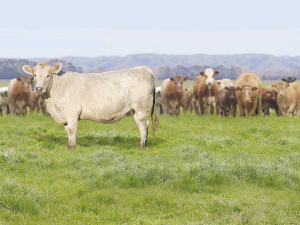Cleland named OSPRI chair
Southland farmer and director Tony Cleland has been named OSPRI New Zealand’s new chair.
 Beef + Lamb New Zealand say they are concerned about a recent exposure draft of the National Policy Statement for Indigenous Biodiversity.
Beef + Lamb New Zealand say they are concerned about a recent exposure draft of the National Policy Statement for Indigenous Biodiversity.
Beef + Lamb New Zealand (B+LNZ) says it is calling for the Government to improve it’s latest biodiversity reforms.
In an email sent out to farmers earlier this week, signed by B+LNZ chief executive Sam McIvor and B+LNZ chair Andrew Morrison, the organisation says the Government’s latest updates to the National Policy Statement for Indigenous Biodiversity (NPSIB) is of particular relevance to sheep and beef farmers.
This, the email claims, is because of the significant amount of native vegetation on sheep and beef farmers.
“B+LNZ, along with other primary sector groups, successfully convinced the Government to pause the initial biodiversity reforms in 2020,” the email reads, adding that farmers had significant concerns regarding the proposed rules, especially those relating to Significant Natural Areas (SNAs) and the potential restrictions on what farmers could do in those areas.
“We believe the latest release [of the NPSIB] is badly timed,” the email states.
B+LNZ says it has undertaken a preliminary analysis of the exposure draft and, the email claims, the organisation will be arguing for the Government to make improvements to the latest proposals and slow down a “deluge of environmental policy reforms”.
The analysis states that criteria for identifying SNAs remains broad and will capture significant areas of sheep and beef farms.
“We previously advocated for the definition to be narrowed to identify habitats that are threatened, at risk, or rare as SNAs,” the emails says.
It claims that if certain areas of land are classified as an SNA, it will restrict farmers’ ability to undertake new or modified activities within or in surrounding SNAS.
In the email, B+LNZ say they are undertaking more in-depth analysis of the exposure draft of the NPSIB released last week and will provide further advice on the implications of the regulations to farmers.
Meadow Fresh has created the world's first fantasy sports league powered by real cows.
This year, 'Foodie February' sees potatoes take the spotlight as one of New Zealand's most powerful and versatile food heroes.
A multi-cultural team is helping to establish one of New Zealand's largest plantings of premium eating grapes - while learning each other's languages and cultures along the way.
The World Wide Sires National All Day Breeds Best Youth Camp Best All Rounder plaudit has become family affair, with 2026 Paramount Cup winner Holly Williams following in her sister Zara's footsteps.
DairyNZ is giving New Zealand farmers a unique opportunity to gain hands-on governance and leadership experience within the dairy sector.
Herd improvement company LIC has posted a 5.2% lift in half-year revenue, thanks to increasing demand for genetics.

OPINION: Meanwhile, red blooded Northland politician Matua Shane Jones has provided one of the most telling quotes of the year…
OPINION: This old mutt has been around for a few years now and it seems these ‘once in 100-year’ weather…